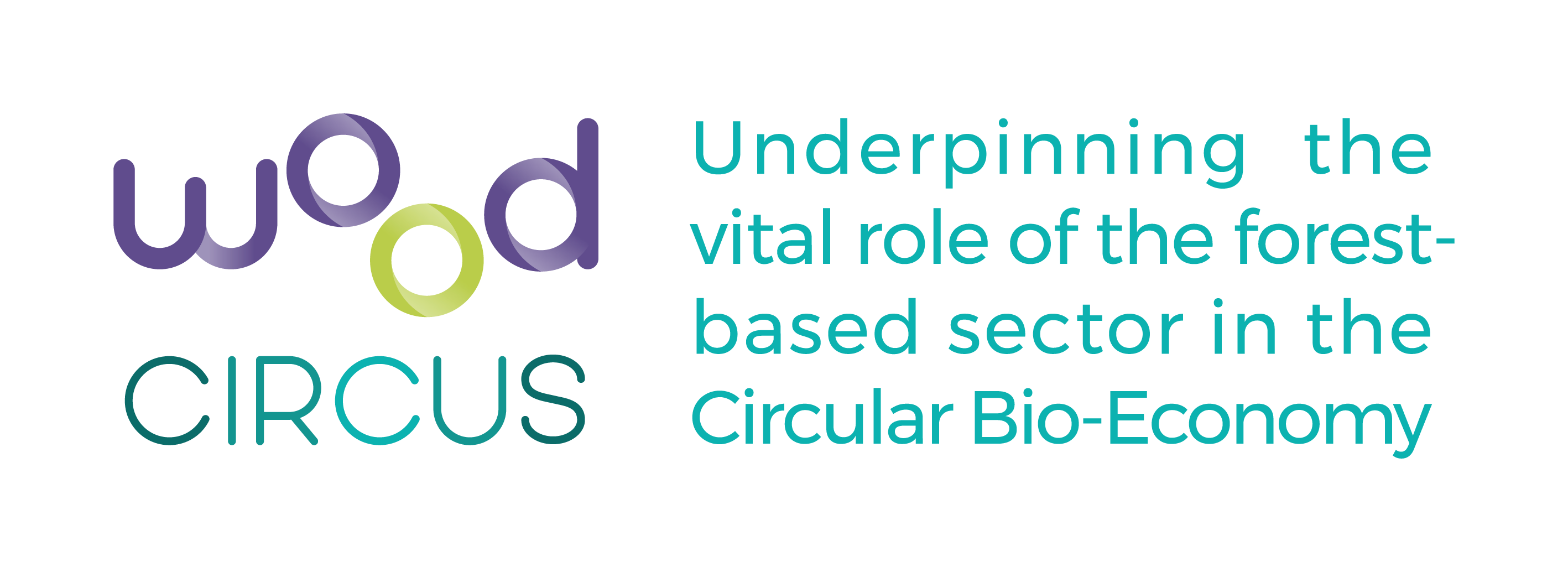Woodcircus
Behind the scenes
Waste wood recovery and recycling in France: Extended producer responsibility systems
14 December 2021
In the field of waste management, the Extended Producer Responsibility (EPR) system has proved to be quite efficient for developing waste management for different categories of products.
Initially implemented in France on consumers’ packaging waste (1992), it has been extended to furniture in 2012. The principle is embedded into the 1975 French law on waste management as follows: “Producers, importers and distributors of these products or of the elements and materials used in their manufacture, may be required to provide for or to contribute to the elimination of the waste which originates from them.” A law from 2009 required the implementation of such a system for furniture. Two eco-organisations, ECOMOBILIER and VALDELIA, were created in 2012 by the sectors’ professionals, which allowed the start of the system in spring 2013.
What is in practice a ERP system? In general one can say that manufacturers, distributors, importers, and other stakeholders who place products that generate waste on the market, must take care (e.g. financially) of its management. Although based on individual producer responsibility, EPR can either be provided by marketers, individually or collectively, e.g. via an eco-organisation. The objective of an ERP system is to develop the recycling of certain waste and to increase the recycling performance, while at the same time relieving local authorities of the total or of a share of these costs for waste management. Transferring costs from taxpayers to consumers is done by internalising the costs into the selling price of the new product.
The ERP systems are based on the principle according to which the producers, that is to say the persons responsible for placing certain products on the market, can be made responsible for financing or organising the management of the waste resulting from these products’ end of life. Producers generally choose to organize themselves collectively to fulfil these obligations within the framework of non-profit eco-organisations approved by public authorities. In total fifteen waste management systems are currently operating in France, making it one of the leading countries in Europe applying the ‘polluter pays’ principle.
Setting up an EPR system therefore means transferring and shifting responsibility. Here via shifting costs from waste management to producers or origin. Such a scheme allows the producer to integrate the cost of waste management into the cost of the product, which allows to become aware of these costs and to implement the eco-contribution. In furniture as an example, the eco-contribution is a kind of specific tax, which is applied to each piece of furniture. Hereby it finances the sorting and recycling of furniture at the end-of-life, set for each product according to a unique and national scale. The amount is invariable from manufacturer to end-user. The level of contribution for a product is defined according to the complexity that it will generate at the time of collection and treatment for recycling; so, the scale depends on the products’ materials, on the quantity and potentially on the type of assembly. For example, a piece of furniture between 5 and 20 kg will have an eco-contribution of 1 euro (scale 2020 at Ecomobilier). Furniture composed mainly of more than 75% of wood or metal will see its eco-participation drop to 0.56 €, and at the end, a piece of furniture made 75% of eco-certified wood will be at 0.48 €.
The eco-organisations, which are set-up by producers, collect the eco-contribution. These funds are used to implement waste recollection and recycling, either by helping communities to organize these actions or by contracting directly companies operating in this sector. The contributions paid must be adjusted, according to incentive environmental criteria, which are linked to the eco-design of products, for raising awareness among the producers and to motivate their interest in designing products which are easy to collect, to grade and to recycle (including incorporated recycled raw materials). The impact of the activity of Ecomobilier (the eco-organisation management of household furniture waste) can be measured as follows : in 2012, 50% of used furniture was landfilled and only 23% was recycled; in 2017, 90% of used furniture was recycled or recovered as energy. In 2019, 874 kt of used furniture was collected, 93% recovered (57% for recycling and 36% for energy). 5 000 collection points had been installed and more than 500 kt of wood from furniture waste had been collected, recycled or used for energy production. For Valdelia, who is in charge of the management of professional furniture waste, in 2019, 93 kt of furniture waste was collected, 92% was recovered, of which 84% was recycled, more than 55 kt of wood from furniture was collected (of which 35% was exported to other European countries).
In February 2020, a law has been promulgated on circular economy, which requests the implementation of an ERP system for construction and demolition waste (C&D waste), by 2022. The foreshadowing study for this ERP system indicates a total amount of 48 Mt C&D waste resource, including about 2,2 Mt of waste wood. Different eco-organisations are now preparing their application to be in charge of C&D waste wood and/or waste joinery including wood frame ones. It is expected that this development will have a strong impact on the levels of recollection, recycling and energy recovery from C&D waste wood.
France: an ambitious wood waste management development plan for 2025
In 2017, driven by the French strategic development committee for the wood industry (CSF bois), a wood waste plan was developed, which sets objectives shared by professionals in the sector, representing wood waste management, recycling and energy stakeholders, and which is supported by ADEME and the Ministry of Ecology. The aim of this plan is to significantly increase the collection, recycling and energy recovery of wood waste in France. Targets are set for 2025 (with reference to 2015) and guidelines are defined to achieve these targets, involving the mobilisation of all stakeholders, including the administration. This plan therefore proposes to subtract 800 kt of waste wood to landfilling (half from furniture waste and half from C&D waste), to reduce export by 200 kt, and to collect 300 kt more from wood second transformation processes. These 1.3 Mt should then be used as follows: 400 kt increase in recycling in the particle board industry, 900 kt increase for the energy production, in different sizes and types of energy plants. In order to help reaching these objectives, different recommendations were made, including measures for structuring the waste wood recycling and energy recovery market.
The recent observation of the situation shows that the progress to date with recollection of furniture waste wood, and probably also with C&D waste wood are significant, thanks to the ERP system for furniture and the reinforcement of sorting on demolition sites and strengthening of access controls at inert waste landfills. Recycling in the particle board industry seems also to be progressing in line with the 2025 objective of the waste wood plan, with an increase of the average level of recycled wood used in French plants. As for energy recovery, which has set the most ambitious progression target, up to now, no large development has been seen but a certain number of projects of new large plants are envisaged. No doubt, the new-coming ERP system for C&D waste wood will help reaching these targets.
Gérard Déroubaix
Directeur adjoint Pôle BioSense, FCBA
gerard.deroubaix@fcba.fr
Gérard Déroubaix
Directeur adjoint Pôle BioSense, FCBA
gerard.deroubaix@fcba.fr
CONTACT US
Interested in joining the WoodCircus network? Please use the contact form to get in touch with us or contact directly the WoodCircus Ringmaster :
Project Coordinator
Anne-Christine Ritschkoff, VTT
Anne-Christine.Ritschkoff@vtt.fi
PROJECT COORDINATOR
VTT Technical Research Centre of Finland Ltd
Anne-Christine Ritschkoff
Anne-Christine.Ritschkoff@vtt.fi


